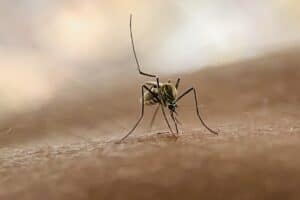Global fund cuts a huge setback in war against Aids, TB and malaria.

Calls to replenish the Global Fund have been renewed as the worldwide battle against Aids, tuberculosis and malaria is threatened by cuts in global health financing.
This was revealed by Doctors Without Borders (MSF), which has expressed concerns about the risk of losing hard-won progress in the fight against the highly infectious diseases.
In its latest report, Deadly Gaps, MSF highlighted the alarming impact of funding shortfalls in high-burdened countries where community-based health programmes were being scaled down or discontinued.
The organisation said the situation had resulted in increased illness, loss of follow-up and rising mortality.
ALSO READ: New hope for lung fibrosis
Billions in US funding pledges remain unfulfilled
Key donors, including the US, have yet to announce pledges for the Global Fund’s next three-year funding cycle in November.
In January, the US, previously the largest funder of global health programmes, announced a suspension and review of all aid.
Since then, nearly $3 billion (about R52 billion) of the $6 billion it had pledged to the Global Fund to fight Aids, tuberculosis and malaria for 2023 to 2025 remains unfulfilled.
South Africa was one of the largest beneficiaries of US health aid, including the US President’s Emergency Plan for Aids Relief (Pepfar), designed to combat HIV-Aids by providing funding and technical support to 55 countries in sub-Saharan Africa.
Since Pepfar’s inception in 2003, the US government has invested over $100 billion in the global HIV/Aids response, saving over 25 million lives, preventing millions of HIV infections and supporting several countries to achieve HIV epidemic control.
However, US President Donald Trump withdrew the programme, which was established by George W Bush and continued in successive administrations.
Treatment Action Campaign (TAC), which championed the funding and access to HIV-Aids in South Africa, along with MSF, is among those that advocated for the fund’s replenishment.
“It would be a mortal blow should the Global Fund not meet its replenishment targets at this critical juncture in the response to HIV, TB and malaria,” TAC general secretary Anele Yawa said.
“Our data has shown worrying trends of regression in the past six months. History will judge us harshly if we stay silent.”
MSF’s senior HIV/TB advisor, Antonio Flores, said: “The consequences are already visible. In Honduras, abrupt cuts by Pepfa halted HIV prevention and care programmes. Patients lost access to pre-exposure prophylaxis overnight and health workers lost their jobs. We’re now seeing patients return with advanced opportunistic infections.”
The reality of infectious diseases is that when left unchecked, they worsen and spread.
Cutting funding undermines years of hard-won progress, while sustaining successful approaches and supporting promising innovations can save lives.
Despite medical advances, HIV still causes an estimated 1.3 million new infections and more than 600 000 deaths annually.
MSF said national scale-up efforts in Malawi have stalled due to reduced US funding.
Tuberculosis causes an estimated 1.5 million deaths per year. In Sudan, MSF has witnessed TB testing equipment sitting unused due to a lack of trained staff.
In Belarus, research on drug-resistant TB supported by MSF and the fund was recently halted due to unfulfilled funding.
According to MSF, malaria remains the leading cause of death among children under five in endemic countries.
MSF teams in the Central African Republic, South Sudan and the DRC report shortages of diagnostic tests and medications, and understaffed facilities with deadly consequences for young patients.
NOW READ: Multiple crashes claim six lives, while driver flees after vehicle overturns






